Traditional practices have endured through time and generations, offering invaluable insights into environmental stewardship. These Indigenous cultures emphasize a profound connection to the land, viewing nature as a living entity deserving respect and care. By exploring their sacred traditions and ecological wisdom, we can uncover sustainable practices that address today’s environmental challenges.
These teachings highlight the importance of balance, reciprocity, and community engagement in managing natural resources. As we face pressing issues like climate change and biodiversity loss, learning from these time-tested practices can guide us toward more holistic solutions. Embracing Indigenous knowledge not only fosters greater understanding and respect for our environment but also inspires collaborative efforts to protect and restore the planet for future generations.
A luncheon will follow the colloquium at 1 p.m. in the CHE space in M390 Science Hall. It will be catered by Pikkito. RSVP for the luncheon by December 4
Speakers
Rolando Pauccar Calcina
Sowing the New Seed of the Inca People
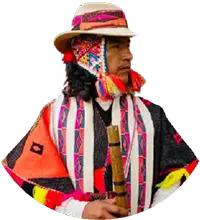 Rolando Pauccar Calcina, born on November 15, 1993, in the Q’ero Marcachea community of Peru, embodies the rich heritage of the Q’ero Nation, recognized as the last Ayllu Inca. Since childhood, Rolando has been steeped in Traditional Environmental Knowledge, learning about medicinal plants and ancestral ceremonies from his family.
Rolando Pauccar Calcina, born on November 15, 1993, in the Q’ero Marcachea community of Peru, embodies the rich heritage of the Q’ero Nation, recognized as the last Ayllu Inca. Since childhood, Rolando has been steeped in Traditional Environmental Knowledge, learning about medicinal plants and ancestral ceremonies from his family.
His journey to preserve this knowledge took him from the Andes to urban Cusco, where he embraced both spiritual development and the challenges of a new life. After years of exploration, including a significant pilgrimage along the Qhapaq Ñan trail, Rolando committed to revitalizing Andean wisdom for contemporary society.
Today, as an Andean priest and founder of the Wiñay Marka Institute, he leads workshops globally, promoting ancestral healing practices and environmental stewardship. Rolando is dedicated to protecting his community’s cultural heritage, advocating for sustainable practices, and integrating traditional knowledge with modern ecological efforts for a balanced relationship with nature.
Túpaq Ttito Kuntur
The Path of the Willaq Uma: Awakening Inka Wisdom and Healing Through Ancestral Prophecy
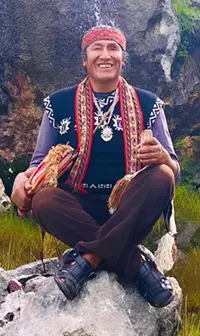 Túpaq Ttito Kuntur, born in Pomaqanchi, Peru, has dedicated his life to preserving Traditional Environmental Knowledge through Andean medicine. Guided by his grandfather and parents, both pampamisayoqs, Túpaq began his healing journey early on. His experiences, including surviving lightning strikes and the loss of loved ones, fueled his commitment to understanding and healing the world around him.
Túpaq Ttito Kuntur, born in Pomaqanchi, Peru, has dedicated his life to preserving Traditional Environmental Knowledge through Andean medicine. Guided by his grandfather and parents, both pampamisayoqs, Túpaq began his healing journey early on. His experiences, including surviving lightning strikes and the loss of loved ones, fueled his commitment to understanding and healing the world around him.
After grappling with a mysterious illness, he ventured into the mountains, ultimately becoming a paqo. Through years of personal trials and spiritual training, he was bestowed the title of Celestial Misha of High, or Altomisayoq, a role that deepened his connection to nature and the cosmos.
As Willaq Uma, he serves as a messenger of ancestral wisdom, working to revive the spiritual heritage of the Inka and foster harmony with the environment. Túpaq’s mission is to unite people in restoring the sacred balance of our world, emphasizing the interconnectedness of all life within the cosmos.
Kata Beilin
Maya Living Legacy: Inspiring Future Pathways
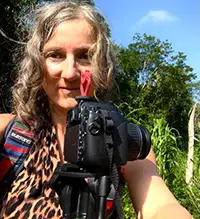 Kata Beilin is a professor in the Department of Spanish and Portuguese at the University of Wisconsin–Madison. For the past 10 years, she has worked closely with the Maya people of Yucatán, documenting their efforts to defend their territory, forests, milpas, bees, as well as their language and spirituality.
Kata Beilin is a professor in the Department of Spanish and Portuguese at the University of Wisconsin–Madison. For the past 10 years, she has worked closely with the Maya people of Yucatán, documenting their efforts to defend their territory, forests, milpas, bees, as well as their language and spirituality.
In 2022, alongside Avi Weinstein, Kata directed and produced Maya Land: Listening to the Bees, a documentary film about the resistance of Maya beekeepers against industrial agriculture in the region, which has won multiple awards at international festivals.
She is currently writing a book on Yucatec Maya cultural resistance titled The Return of the Maya Moment. In fall 2024, she organized a series of talks with an interdepartmental faculty group, titled Maya Living Legacy: Inspiring Future Pathways, which will continue into spring 2025. She is also teaching classes on Maya culture.
Joann Jones
Echoes of Resilience: Storytelling Through Generations and the Guardianship of Our Land
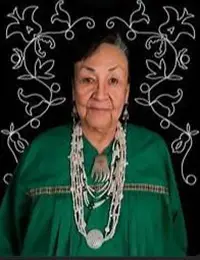 Joann Jones, a respected Ho-Chunk elder and former president of the Ho-Chunk Nation, recently retired as an associate judge but remains deeply committed to environmental protection and cultural preservation. As the first female leader of the Ho-Chunk Nation from 1991 to 1995, she revised the Nation’s Constitution, establishing a judicial branch to safeguard its sovereignty. Joann’s recent cultural exchange to Cusco, Peru, exemplifies her dedication to sharing traditional environmental knowledge between Indigenous peoples.
Joann Jones, a respected Ho-Chunk elder and former president of the Ho-Chunk Nation, recently retired as an associate judge but remains deeply committed to environmental protection and cultural preservation. As the first female leader of the Ho-Chunk Nation from 1991 to 1995, she revised the Nation’s Constitution, establishing a judicial branch to safeguard its sovereignty. Joann’s recent cultural exchange to Cusco, Peru, exemplifies her dedication to sharing traditional environmental knowledge between Indigenous peoples.
Throughout her career, Joann has been guided by a spiritual journey to serve her community. She takes pride in her ancestors’ resilience, maintaining the Ho-Chunk spirit despite historical adversities. Her work has opened doors for tribal sovereignty, including gaming rights and a landmark meeting with President Bill Clinton that emphasized respect for Native governments.
Joann’s passion lies in educating younger generations about their heritage and the importance of protecting the land. She actively encourages Ho-Chunk youth to pursue law and public service, recognizing the need for their voices in shaping policies that affect their communities.
Bill Quackenbush
Ho-Chunk Heritage and Culture — Managing The Three P’s of Tribal Preservation Via Collaborative Stewardship
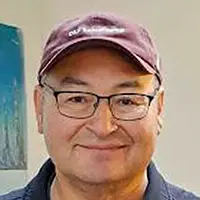 William “Nąąwącekǧize” Quackenbush has dedicated his career to the Ho-Chunk Nation, starting in 1998 as a land specialist in the heritage preservation department. In 2004, he became the tribal historic preservation officer (THPO), shaping the tribe’s preservation efforts. Since 2006, he has also served as the cultural resources division manager.
William “Nąąwącekǧize” Quackenbush has dedicated his career to the Ho-Chunk Nation, starting in 1998 as a land specialist in the heritage preservation department. In 2004, he became the tribal historic preservation officer (THPO), shaping the tribe’s preservation efforts. Since 2006, he has also served as the cultural resources division manager.
William’s diverse roles include Native American Graves Protection and Repatriation Act (NAGPRA) designee alternate, certified ground penetrating radar operator, and tribal historian. He actively participates on several boards, including president of the Wisconsin Inter-Tribal Repatriations Committee and holds an environmental seat on the Kickapoo Valley Reserve.
His work emphasizes the integration of Traditional Environmental Knowledge in contemporary practices, aiming to preserve Ho-Chunk heritage and promote environmental stewardship. With support from the Ho-Chunk Nation Heritage Preservation Board and Traditional Court, William is committed to nurturing the tribe’s culture as a vital source of identity and pride for the Ho-Chunk people.
Event Sponsors
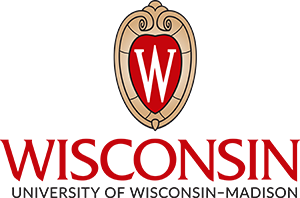
American Indian & Indigenous Studies Program
Department of Spanish & Portuguese
Global Health Institute
Latin American, Caribbean, and Iberian Studies Program (LACIS)
Nave Visiting Scholar Program
